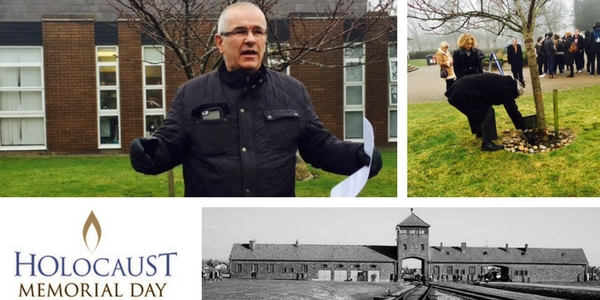Holocaust Memorial Day at University of Northampton highlights the importance of remembering atrocities of the past
Date 25.01.2017
25.01.2017
A poignant ceremony and guest lecture, today (25 January), at the University of Northampton, highlighted the importance of remembering atrocities to prevent the rise of the Far Right.
Students and staff from the University of Northampton gathered alongside local faith leaders to remember those who perished in the Holocaust, as part of the formal celebrations of Holocaust Memorial Day.
Dr Paul Jackson, Senior Lecturer in Modern History, who organised the event, said: “Remembering the Holocaust remains as important as ever. It’s equally important that we honour the survivors of the Nazi genocide and make sure we use this memory to reflect on challenging prejudice and discrimination today.
“In the past twelve months, extreme right groups in America and Europe have found new ways to promote their anti-Semitic and Nazi-inspired ideas, which seem to be becoming more normalised once again; something very concerning for our future.”
A guest lecture by Dr James Jordan, who specialises in Jewish/nonJewish Relations was followed by further talks and activities, including a student presentation on a visit to Auschwitz and Northampton Rights and Equalities Council on their oral history project Race Act 40.
The University’s Multi-Faith Chaplaincy team also coordinated a stone-laying ceremony at Park Campus, which saw attendees place a stone under the Anne Frank and Stephen Lawrence Memorial Tree.
Speaking during the lecture, Dr James Jordan commented: “It’s extremely interesting to see how the media narrative has developed since the 1930’s, post war reporting largely talks about survivors or victims; it’s not until much later that this reporting begins to talk about these survivors or victims being Jewish.”
Dr Jordan’s lecture closed with thoughts on what parallels we can and should draw with the rise of Nazi thinking in Germany before the war, and our own cultural shifts in the UK since that time.